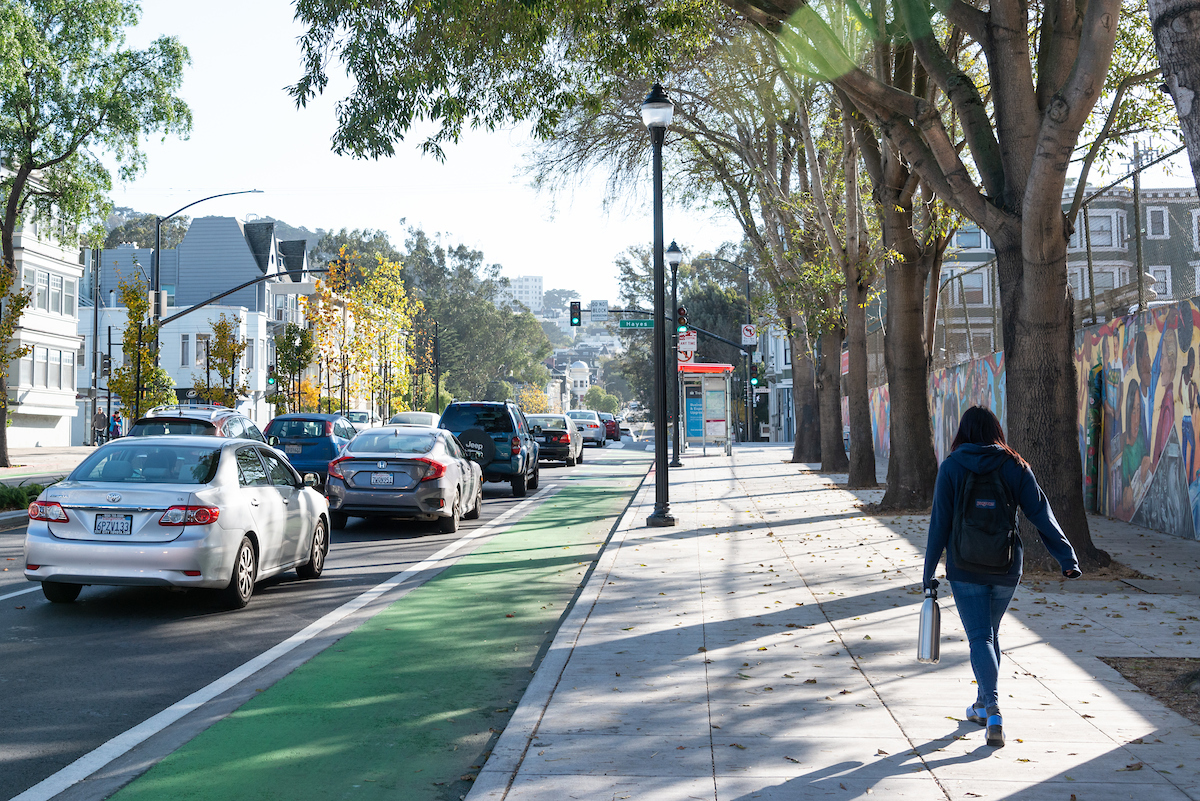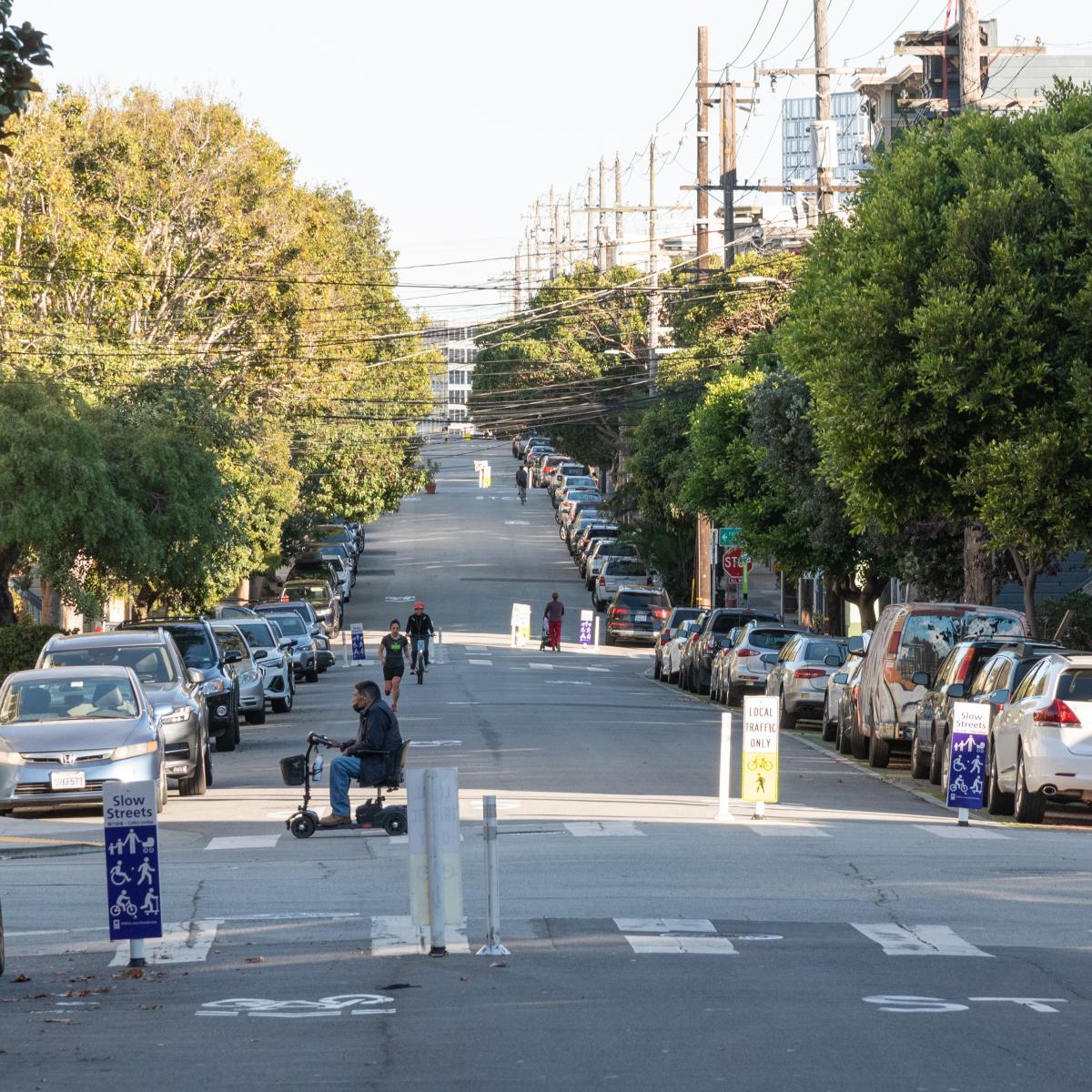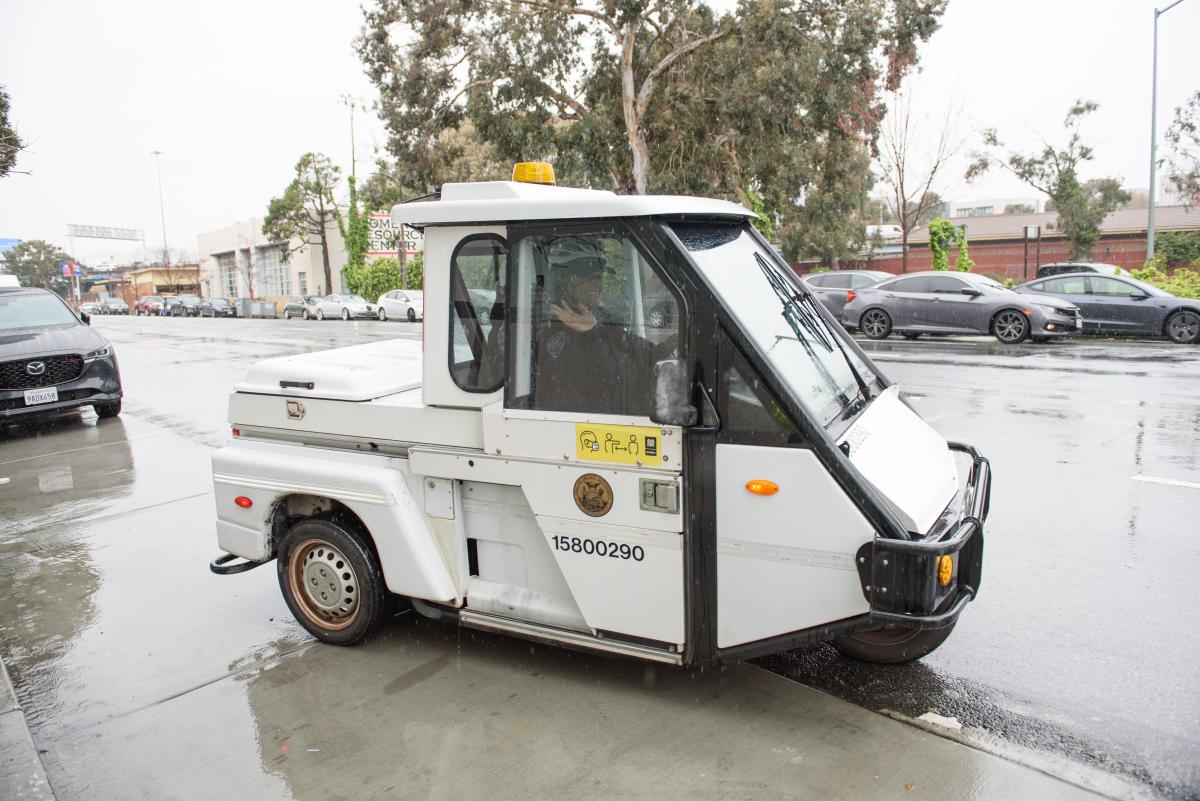By Madhu Unnikrishnan
 Keeping cars off our sidewalks and bikeways will help make it safer for everyone to get around.
Keeping cars off our sidewalks and bikeways will help make it safer for everyone to get around.
This week, we will begin a focused parking enforcement plan to help make sidewalks and streets safer for all San Franciscans. We’ll carry out this work on a rotating basis in each supervisor’s district. Our goal is to limit violations of existing parking regulations.
Improving safety for people who walk, bike, roll and drive
The new Neighborhood Operations Plan will prioritize enforcing safety-related violations. These include parking on the sidewalk, in bike lanes and crosswalks. This way, we can help ensure that people who walk, bike and roll on the city’s sidewalks and streets do not have to enter traffic lanes to get where they need to go.
Our work will improve safety for people using mobility devices like wheelchairs and crutches. It will also help people pushing children in strollers. People who drive will also find it easier to navigate city streets. The Neighborhood Operations Plan will ensure the traffic lanes for cars are safer.
 Our plan will help make travel safer for people who walk, bike, roll or use mobility devices.
Our plan will help make travel safer for people who walk, bike, roll or use mobility devices.
Working with city partners to create safer conditions
The plan aligns with Mayor London Breed’s commitments for the next phase of Vision Zero, San Francisco’s policy to prevent traffic fatalities and severe injuries. Visit the Vision Zero program webpage for more information.
As we reach normal staffing levels for parking control officers, we're in a better position to enforce the city's parking laws.
Moreover, city leaders with this plan are responding to requests from residents. “I am stepping up enforcement of our laws, because that’s what residents deserve and that’s what our city needs,” Mayor Breed said in her State of the City address earlier this year.
The operation will deploy parking control officers to each supervisor’s district for one week of enhanced enforcement. These officers will also carry out their regular duties.
We are in ongoing discussions with the Mayor’s office and each member of the Board of Supervisors on how we will implement the plan for each district.
 Our parking control officers work hard to keep streets and sidewalks safe.
Our parking control officers work hard to keep streets and sidewalks safe.
Helping people park safely: key guidelines to follow
So what does that mean for people who park on the city’s streets?
In short, if you obey existing laws, there will be no difference. For a guide on parking rules in the city, visit our How to Park Legally in San Francisco webpage.
As a refresher, here are guidelines for parking in the city:
-
Do not block driveways or crosswalks. A driveway begins at the “curb cut.” That’s where the driveway begins to slope downward toward street level. Residents can park parallel along the street in front of their own driveways if the driveway serves one to two units and the vehicle is registered to the address.
-
Do not park on sidewalks, even if the pedestrian path is partly clear or if a vehicle is parked across a driveway. A sidewalk citation can be given even if the pedestrian travel path is partly clear or if the vehicle is parked across a driveway. For more on the city’s parking regulations, visit the San Francisco Planning Department’s Code Enforcement webpage. To check your sidewalk’s width, please visit the Department of Public Works’ grade map.
-
Do not obstruct bikeways.
The goal of the Neighborhood Operations Plan is not to punish. It’s in response to residents’ and city leaders’ desire to enhance the safety of our streets and sidewalks.
By preventing parking on sidewalks and bikeways, we make it safer for everyone to get where they need to go. People who walk, bike, roll and use mobility devices can stay in the part of the streetscape that’s safest for their use. People who drive can access clear, safe traffic lanes.
Published April 30, 2024 at 02:29AM
https://ift.tt/vfmZGSg
Comments
Post a Comment